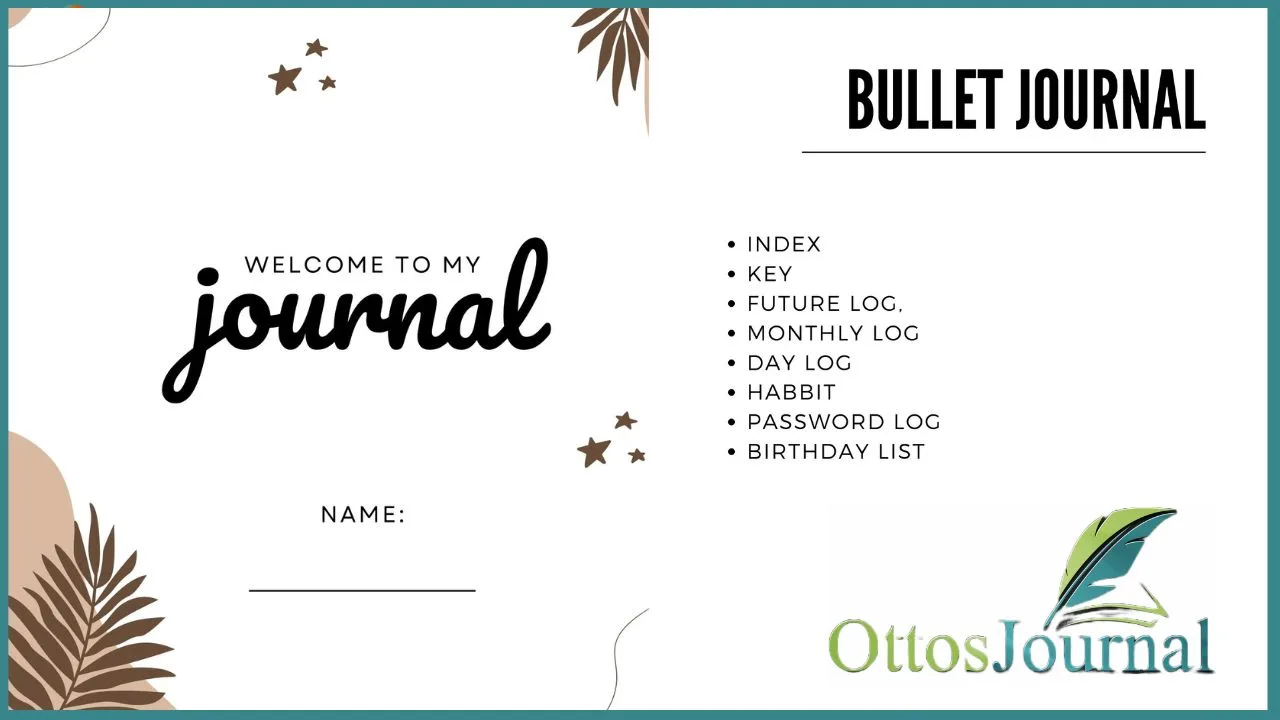Journaling is an excellent way to improve your mental health. Writing down your thoughts and feelings can help you gain clarity, process difficult emotions, become aware of any potential triggers for anxiety or depression, and ultimately improve your overall well-being. In this blog post, I will share with you 55 daily journal prompts for mental health specifically designed to help you on your journey toward better mental health.
55 Daily Journal Prompts for Mental Health
1. What do I appreciate about myself today?
2. How can I practice self-care today?
3. What are the biggest stressors in my life right now?
4. What is one thing that I am proud of accomplishing this week?
5. What personal boundaries do I need to set for myself and others?
6. How can I practice more self-love and acceptance today?
7. What are three positive things that have happened in my life recently?
8. What would I tell my younger self if I could go back in time?
9. What do I need to forgive myself for today?
10. What steps am I taking to reach my goals?
11. What do I need to say “no” to that will help me achieve balance and peace of mind?
12. How have I grown in the past year?
13. What beliefs about myself do I want to change today?
14. What small act of kindness can I offer someone else today?
15. What am I most grateful for today?
16. What are three steps I can take to reduce stress this week?
17. What area do I need to focus on healing in my life?
18. What feelings or thoughts am I avoiding right now?
19. How can I make sure that I stay compassionate towards myself today?
20. What am I avoiding doing that could help me move forward?
21. How can I use my emotions to create positive change in my life?
22. What parts of myself do I need to be more accepting of today?
23. What activities bring me joy and peace of mind?
24. What would make me feel better if I were feeling overwhelmed or anxious?
25. What can I do to show myself love and kindness today?
26. How am I holding myself back from achieving my goals?
27. What positive steps have I taken in the past week that I can be proud of?
28. Am I allowing others to take advantage of me in any way?
29. What is one thing that I need to let go of today?
30. How can I practice self-love without neglecting the needs of others?
31. What do I need to forgive someone else for today?
32. Am I giving enough attention to all aspects of my life?
33. How can I create healthy relationships and boundaries with others?
34. What do I need to focus on right now in order to stay balanced and content?
35. Who can I reach out to for support when I am feeling overwhelmed or down?
36. How can I create more meaning and purpose in my life today?
37. Am I allowing myself the time and space to rest and relax?
38. What are three things that I need to work on in order to become the best version of myself?
39. What activities can I do today that will help me feel better about myself?
40. How am I sabotaging my own success by overthinking or worrying too much?
41. What is one thing that I can do today to make a difference in someone else’s life?
42. How can I practice self-discipline and motivation when it comes to working towards my goals?
43. What am I allowing to take away from my joy and peace of mind?
44. What small act of kindness can I offer myself today?
45. In what ways am I being too harsh on myself?
46. What am I avoiding doing that could help me feel better about myself?
47. How can I live in the present moment?
48. Are there any unhealthy habits or relationships that I need to let go of today?
49. What feelings or thoughts am I avoiding right now that could help me move forward?
50. How can I make sure to take care of my mental health on a daily basis?
51. What are three things that I have learned about myself recently?
52. How can I stop procrastinating and start taking action toward my goals?
53. Describe in detail when you feel most comfortable in your own skin.
54. How can I practice better self-care habits on a day to day life?
55. Write about a time when you were kind to yourself.
How to Setup Daily Journal for Mental Health
Set Up a Space
Before you can start mental health journaling, it’s important to create a comfortable and inviting space for yourself.
This could be anywhere from your bedroom or living room to a quiet corner of your backyard. Wherever you choose, make sure the area is free from distractions so that you can focus solely on writing your thoughts and feelings.
Choose the Right Supplies
There is no one “right” way to journal, so you can pick whatever supplies work best for you. This could be a simple notebook and pen or an elaborate set of stationery.
Whatever materials you choose, make sure they are comfortable to use and that they will last through regular journaling sessions.
Set A Time
Decide on a time that works best for you to journal. This could be in the morning, during your lunch break, or even right before bed.
By setting a specific time for journaling, it will become easier to make this part of your daily routine and stick with it.
Start With a Prompt
When you’re just starting out, it can be helpful to begin each session with a prompt. This could be something as simple as “What am I grateful for?” or “What do I need to let go of today?”
Using a prompt will help get your creative juices flowing and lead to deeper self-reflection.
Write Freely
Once you have chosen a prompt, start writing whatever comes to mind. You don’t need to worry about grammar or spelling, just let your words and feelings flow freely onto the page.
Writing without inhibition can help you gain clarity on difficult emotions and provide valuable insight into yourself.
Reflect On Your Writing
After you have finished writing, take a few moments to reflect on what you wrote. Ask yourself questions like “What did I learn about myself today?” or “What do I need to work on?”
Reflecting on your journal entries can help you gain further insight into how you are feeling and thinking.
Take Action
After reflecting on your journal entry, take actionable steps that will help you move forward. This could be anything from setting a goal, making a new plan of attack for an issue, or simply treating yourself with more kindness and understanding.
Taking action on what you’ve written can help make it easier to move through challenging emotions and difficult times.
Set Aside Time For Reflection
Make sure that you set aside a few minutes each week to reflect back on your journal entries over the course of the week.
This will help you identify any patterns or triggers in your thoughts and feelings so that you can develop better-coping strategies.
Stick With It
The most important part of journaling for mental health is to stick with it. You may not see immediate changes in your mental health, but over time you will gain valuable insight into yourself and find ways to improve your well-being.
How to Organize Daily Journals for Mental Health
Start by setting a time limit for yourself
Choose how long you want to spend journaling each day or week. This will help ensure that you don’t overwork yourself and can give you the space and time needed to reflect upon your thoughts and feelings.
Develop an organized format
Make sure to have an organized format for yourself when it comes to journaling. This could include creating a template or outline for each day’s entry, setting aside specific times for writing, and giving yourself prompts to answer.
Choose the right medium
It’s important to find the right medium that works for you when it comes to journaling. You can use a paper notebook, an online journaling app, or a combination of the two.
Choose a designated space
Set up a designated workspace for yourself when it comes to journaling. Whether that’s at your desk or another area in your home, make sure it’s quiet and comfortable so you can focus on writing without distraction.
Set realistic objectives
Make sure to set realistic objectives for yourself when it comes to journaling. This could include setting goals on how much you want to write each day or committing to writing for a certain number of days each week.
Track your progress
As you continue with the practice of journaling, track your progress so that you can see how far you’ve come and what areas still need improvement.
Gather resources
To help improve your regular journaling practice, look for online blogs or books that can give you guidance on the best ways to organize and write in a daily journal. This can provide valuable insight and support on how to effectively use journals as a mental health tool.
Tips for Using Mental Health Daily Journaling Prompts Successfully
Ask yourself open-ended questions
To ensure that you get the most out of your journaling practice, make sure to ask yourself open-ended questions so that you can explore different aspects of your life and feelings.
Focus on one prompt at a time
Try not to overload yourself by focusing on too many prompts at once. Instead, focus on one prompt at a time and explore it in depth.
Take your time
Don’t rush through the process of journaling as this can prevent you from really taking the time to reflect upon your thoughts and feelings. Allow yourself ample time to write and express your emotions without feeling rushed.
Write down anything that comes to mind
Don’t edit yourself as you write. Simply let your thoughts flow freely and document any feelings or ideas that come up while writing.
Journal regularly
To get the most out of gratitude journaling, make sure to practice it on a daily basis. This way, you can track how your mental health is changing over time and notice patterns in your thoughts and feelings.
Get creative
If you’re feeling stuck while writing, try to get creative with how you express yourself. You can draw pictures or collages, use different colors for each emotion, or even create a mood board that reflects your current state of mind.
Find support
Journaling can be an emotional experience, so make sure to find support if you need it. Reach out to a trusted family member or friend, look for online mental health resources, or even join a journaling group to connect with others who share your experiences.
Bottom Line
Mental health daily journaling prompts can be a helpful tool for self-reflection, self-expression, and emotional exploration.
By following the tips above and using the prompts listed in this article, you can create an effective practice that will help you stay organized, express yourself creatively, and work towards better mental health.





